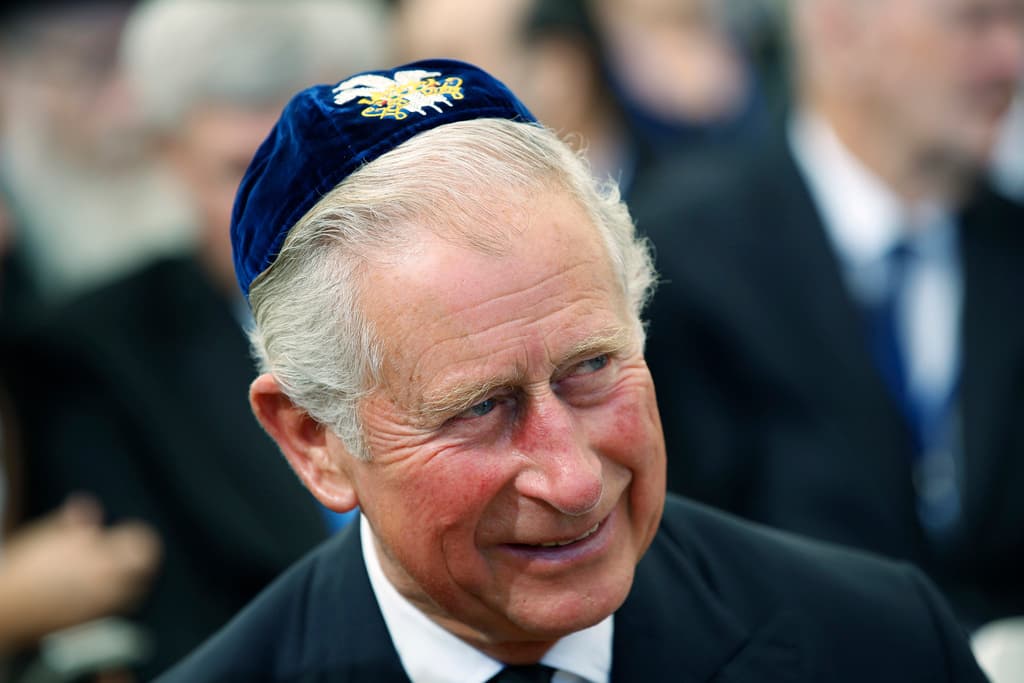If I Forget Thee, O Jerusalem . . .
On Israel’s 75th anniversary, might history come full circle?

By the rivers of Babylon, there we sat down, yea, and we wept when we remembered Zion.
We hanged our harps upon the willows in the midst thereof.
For there they that carried us away captive required of us a song; and they that wasted us required of us mirth, saying, Sing us one of the songs of Zion.
How shall we sing the Lord’s song in a strange land?
If I forget thee, O Jerusalem, let my right hand forget her cunning.
If I do not remember thee, let my tongue cleave to the roof of my mouth; If I prefer not Jerusalem above my chief joy.
* * *
That psalm was the entire editorial in the Sun as Israel declared its statehood 75 years ago today. The declaration was the culmination of the revolt against the British mandatory power in the land of Israel. Today it’s being reported that King Charles III would like to make a trip to Israel — the first British monarch to do so — and that planning is underway. It would be a wonderful coda to the triumph of the Zionist idea.
We were put in mind of the question last week because Dominic Green, writing in the Wall Street Journal about Charles III, noted that no reigning British monarch has visited Israel, not even Elizabeth II, though her mother-in-law, Princess Alice, is buried at Jerusalem. Then a report in Times of Israel suggests that in respect of Israel a special feeling lurks in the breast of the new King, anointed with oil sanctified in Jerusalem and crowned with a hymn to Solomon.
The prospect of a visit by the House of Windsor to the House of Israel is one of those tricks of history that we tend to enjoy. It was the declaration by Lord Balfour in 1917 that conveyed Britain’s “sympathy with Jewish Zionist aspirations” and announced that “His Majesty’s Government views with favor the establishment in Palestine of a national home for the Jewish people.” Thirty years later, David Ben-Gurion declared one.
England, though, had frustrated the return to Zion with its White Paper limiting immigration, even as Auschwitz churned with its charnel work and Churchill spoke of Europe’s “darkest hour.” The white paper was a death sentence for many, and Ben-Gurion promised to “fight the White Paper as if there were no Hitler and fight Hitler as if there were no White Paper.” The Irgun bombed the British military headquarters at the King David Hotel.
Yet the Irgun’s leader, Menachem Begin, and the future king eventually enjoyed warm relations. We glimpsed this in 1982, when we, then with the Wall Street Journal, interviewed Begin in Jerusalem. When the name of Prince Charles came up, Begin, by then not only prime minister but also a Nobel laureate in peace, told us that he had sent, on the birth of Prince William, a friendly note of congratulations to the new father and future king.
Suddenly, Begin turned to his famed secretary, Yechiel Kadashai, and asked him to fetch the letter that had come back. It turned out to be a very friendly note from Charles, and his wife, Princess Diana. When Kadashai returned with the letter, it was passed around with great pride by the premier who had once topped a wanted poster of the British Mandate. It was a short but warm note, signed “Charles” and “Diana.”
As a prince, Charles twice visited Israel, for the funerals of Prime Minister Rabin and President Peres. William, now Prince of Wales and heir, paid the first official royal visit to Israel, where the Jewish state’s then-president, Reuven Rivlin, greeted him as “prince and a pilgrim.” He prayed at the Western Wall, but feet from where Zadok, invoked in the coronation service, would have sauntered in his priestly vestments.
The words of the psalm above, among the most famous sentences ever composed, were written by King David. When they were reprinted in the Sun, no headline was appended or needed. Two days later, the Sun issued its editorial declaring that the “civilized world must see to it that” the Jews of Palestine be given “every fair chance” to defend “the most glorious event in some 2,000 years of history.” It was, they did, and it is, among other things, a stage set for a king.

